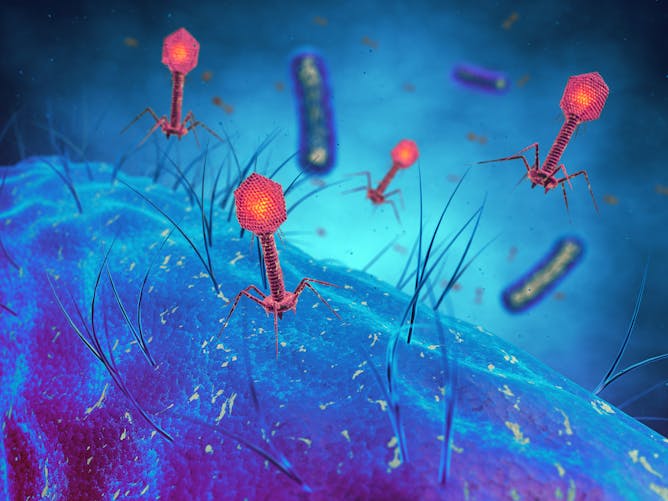|
You don’t need to be a scientist to have an opinion about the recent controversy over the Chinese researcher who created the world’s first genome-edited twins. But how did he do it? And what exactly is CRISPR? Today in The Conversation Canada, John Bergeron, a professor of medicine at McGill University, explains the history of gene editing (including Canada’s role) and how this latest development has raised fears “comparable to the consequences of nuclear warfare and climate change.”
It’s one of several articles we’re offering up today that are meant to expand your knowledge and provoke debate on some important topics.
-
The news that the social media platform Tumblr is banning “adult content” may have an unexpected negative effect on LGBTQ youth.
-
We may be happy that the postal service has resumed as the holiday season approaches, but there’s historical precedent to suggest the government’s back-to-work legislation could come back to haunt Justin Trudeau in next year’s election.
-
The opioid crisis is still a major problem, but in some areas across Canada, crystal methamphetamine has become the drug of choice – especially among gay and queer men.
-
Thursday was White Ribbon Day, a date Canadians remember the 14 women killed in 1989 at École Polytechnique in Montréal. But why is there still a debate about whether the killings were an act of terrorism against all women?
And finally…remember homeroom in high school? It was a relatively safe and calm place where we all started the school day. Eva Pomeroy, who currently holds the position of Social Innovator in Residence for the Faculty of Arts and Science at Concordia University, suggests a similar setting should be considered for university undergrads. They would benefit from “a small, continuous community where people connect with each other and, together, make sense of what they are learning.”
Regards,
|

Bacteriophage viruses infecting bacterial cells , Bacterial viruses.
from www.shutterstock.com
John Bergeron, McGill University
Gene editing through CRISPR may have greater consequences than climate change or unleashing the energy of the atom.
|
Health + Medicine
|
-
Rod Knight, University of British Columbia
The sexualized use of crystal meth by gay men is one of the key drivers of rising HIV rates and has many negative mental health consequences. Integrated sexual and substance use care is vital.
|
|
Arts
|
-
Stefanie Duguay, Concordia University
LGBTQ youth use Tumblr more frequently than others. The platform has provided a safe space for youth to explore sexual identities and find crucial support. A new regulating policy may change all that.
|
|
Education
|
-
Eva Pomeroy, Concordia University
Undergraduate students need a learning community that meets throughout their degrees for workshops and community-building. Such a post-secondary ‘homeroom’ could multiply positive connections.
|
|
Politics
|
-
Charles Smith, University of Saskatchewan; Larry Savage, Brock University
Ordering Canada's postal workers back on the job may hurt Justin Trudeau. CUPW could direct its anger directly at the Trudeau Liberals ahead of the 2019 federal election.
|
|
Culture + Society
|
-
Francis Dupuis-Déri, Université du Québec à Montréal (UQAM); Mélissa Blais, Université du Québec à Montréal (UQAM)
When 14 women were killed at École Polytechnique in 1989, no one at the time considered it an act of terrorism. Three decades later, that's exactly how it should be viewed.
|
|